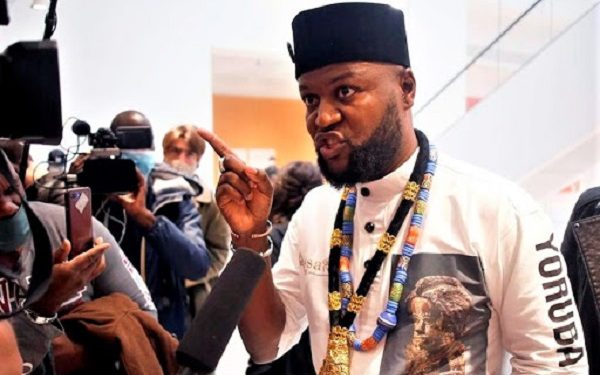The verdict in the trial of a Congolese activist Mwazulu Diyabanza and four other associates is due on October 14.
Diyabanza, a member of a Pan-African movement pressing France to return stolen African artifacts and make reparations for acts of slavery.
In June, Mwazulu Diyabanza prised a 19th century funerary post from central Africa carved wooden ornament from its stand in a Paris museum while his associate live streamed the action before they were stopped and arrested by security.
They were charged for theft but they considered their actions politically justified “Who is the real thief in this story? The thief is he who takes something fraudulently. I’m the legitimate inheritor,” Diyabanza said.
Diyabanza’s case has led to renewed scrutiny of France’s history in a year in which anti-racism protests have forced developed nations to re-examine how they remember their colonial pasts.
According to French historian, Benedicte Savoy, a huge part of Africa’s cultural heritage is on display in Europe. The Quai Branly Museum in Paris holds some 70,000 African objects, with London’s British Museum holding thousands more.
In his 2018 report co-authored with Senegalese economist Felwine Sarr recommended the widespread return of cultural artifacts removed from Africa, identifying 46,000 objects that would qualify at the Quai Branly museum.
French President Emmanuel Macron has said “African heritage can’t just be in European private collections and museums” yet records indicate that fewer than 30 African artifacts in French collections have been handed back.

